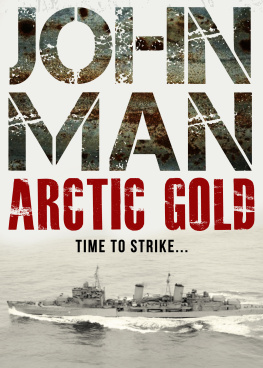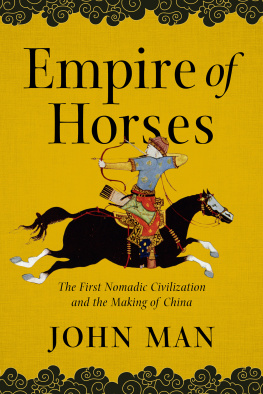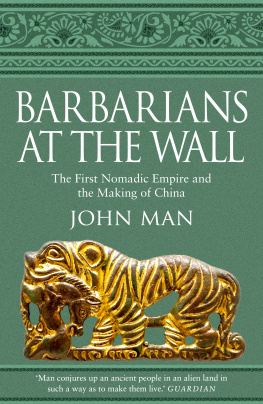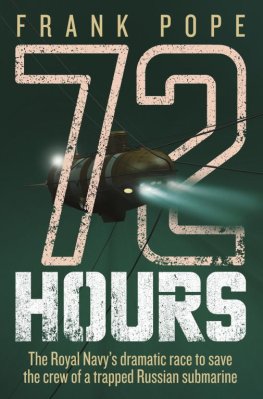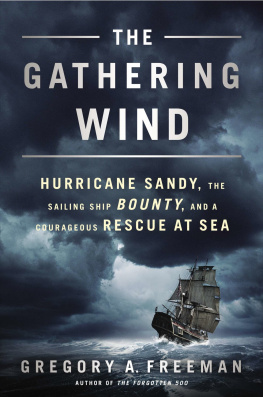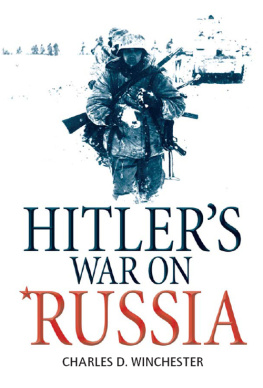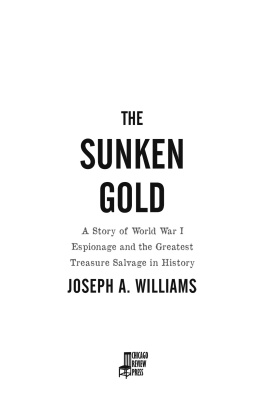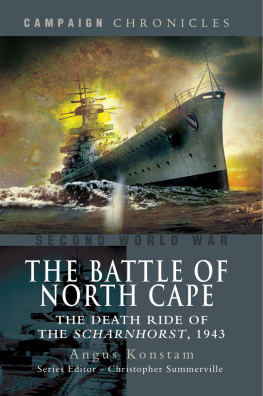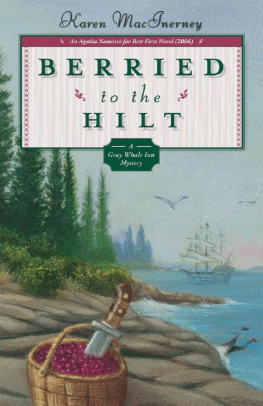Arctic Gold
John Man
Copyright 2015 John Man
John Man asserted his rights under the Copyright, Design and Patents Act, 1988, to be identified as the author of this work.
First edition published in 2015 by Endeavour Press Ltd.
This edition published in 2018 by Endeavour Media Ltd.
Table of Contents
PROLOGUE: THE DELIVERY
Murmansk, Saturday25April1942
4.33 a.m., a bitter hour before sunrise. In the Arctic port, a 27-year-old lieutenant named Grigorenko shrugged up the collar of his greatcoat against an icy wind and spat out the stub of his black-papered cigarette. Flurries of snow whipped in from the darkness. His platoon, half a dozen men in heavy gloves, fur hats and ankle-length Red Army coats, were in pairs beneath two lights that threw swinging yellow circles on the snow-covered quay. Stubble-jawed and haggard with exhaustion, they were unloading metre-long wooden crates from the cavernous interior of a railway wagon and heaving them into a line at the edge of the quay. Theyd been at it for a couple of hours ninety-three boxes, fifty kilos each, as Grigorenko well knew. Only four more. He watched as two of his team dropped their load hard, the thump of wood on ice cutting through the wind.
Hey! Go easy!
One of the two men veered towards him.
Why, comrade? Whats in there?
Stalins underpants. Move.
Spare a cigarette?
Move! He saw the gaunt face, the eyes narrowed by the biting gusts, and relented. Later, Grekov. Theyre waiting. He nodded at the darkness beyond the quay.
Down there lay a flat-bottomed barge and a sturdy tug. No lights on them, but in the eastern sky, he noticed, the clouds had a tinge of grey. A warehouse hemmed the quayside, its windows gaping like eye-sockets in a skull. From the shadows came the glint of six rifles stacked against a wall. Southwards loomed the shadows of cargo ships and cranes. From the railhead other warehouses ran off towards the town. Brick chimneys rose from the ruins of houses. The place was a morgue, burned out by German bombers from over the Norwegian and Finnish borders 100 kilometres away.
Another panting pair came past, and another. Grekov and his companion lifted the last crate from the wagon and carried it unsteadily to the quayside. Ninety-three, stacked in two layers along the harbour wall.
Grigorenko slapped his gloves together. You, you, you and you down there. Grekov and Yevchin, up here.
The four men climbed down to the deck of the barge. Grekov and his mate began to pass the boxes down to them. Good soldiers, all of them, even after eight days of misery. But they would endure, because they had no option, and because they knew their mission was almost over.
*
Hitler had occupied Norway in April 1940, extending German domination of the seas northwards to the Arctic, and then swept across western Europe. On 22 June 1941 he had invaded Russia. Within days all access to the West was barred, except for the sea route via Russias remote Arctic ports of Archangel and Murmansk. One quick push eastwards over the border, where Norway and Finland came together and Russia would lose even these two outlets. But in winter, across those hideous, snowy wastes of infinite woods and a thousand frozen lakes, there was no such thing as a quick push. The northern rail link from Moscow, though battered, remained intact.
At the time of the invasion of Russia, Britain had stood alone for six months. Everywhere on mainland western Europe Germany had triumphed. But Russia was not such an easy target. If she could endure, she could tie down Hitlers armies for months, years perhaps, and offer respite to beleaguered Britain. Churchill had therefore promised Stalin all the aid that could be spared. Supplies were to be sent in on convoys of ships ploughing northwards through gales and fog, edging between the Germans to the south and pack ice to the north, skirting the northern tip of Norway to Archangel and Murmansk.
Murmansk lay ten miles inland, in the Kola Inlet. For Russia, this estuary was of vital strategic importance. Despite its position north of the Arctic circle, it was ice-free all year round. The sea was kept fractionally above freezing point by the last dying touch of the Gulf Stream as it curled along Norways northern coast, forcing back the pack ice that lay a few score kilometres away. Further east, the Gulf Stream gave up the last of its heat. Six hundred kilometres away, Archangel was blocked off by ice from December to June.
The first convoy had arrived in October 1941. By the end of the first year the convoys, sailing every two or three weeks, had delivered 750 tanks and 1,400 vehicles. Britain could spare little more. But in December America had entered the war. From then on, most material would be from America. Until June the following year all of it would go to ice-free Murmansk.
Stalin was an unwilling ally, united with Britain only by Hitlers assault, but he had at least agreed to pay for some of Americas supplies. Rubles were useless, and Moscow held no dollars. Gold was the only currency. Grigorenkos task had been to accompany the first payment of five and a half tons of gold to Murmansk, and there to hand it to the British for delivery to America. Ninety-three crates, counted in, checked and rechecked and signed for and countersigned, each one numbered and stamped with the official CCCP seal the Cyrillic equivalent of USSR and none of the others in the know.
The journey from Moscow had been dismal. Once, there had been a line direct to Murmansk, but that was an age ago, when Hitler was still an ally. The route now lay 1,000 kilometres north to Archangel and then on north-west another six hundred kilometres around the White Sea. Throughout the late summer German planes bombed the railway and Murmansk itself almost daily. Under cover of the long Arctic nights, convict labourers, emaciated bundles of rag, repaired the rails. They had not the strength to do it well. In Moscow, Grigorenko was told the journey would take two and a half days; they had given him rations for five; and it had taken eight. The train had rolled at walking pace through the northern forests, past remote communities of wooden shacks Belomorsk, Kern, Loukhi, Kandalaksha. The engine, its tender stacked with metre-long fir logs, pulled just a single enclosed wagon. In one half lay the boxes; in the other half wooden benches lined the walls. Above them hung wooden bed pallets slung from chains. A wood-burning stove kept the men from freezing to death, but, although it was red-hot for twenty-four hours a day, it never touched the ice on the inside of the truck. Grigorenko and his men had not undressed, nor even taken off their coats, for over a week.
Now, unshaven and stinking like goats, they had nearly completed their task. They finished stacking the crates on the stern of the barge, and Grigorenko looked up at the tug, a tough little workhorse with a tiny wheelhouse open at the stern. He shouted; in the cab a shadow moved and the ancient single-cylinder engine thumped into lift. Grigorenko scrubbed the back of his glove along his stubbly chin, easing his frozen jaw, then shouted once more. The men clambered back on to the quay, walked over to their rifles, slung them over their shoulders and began to climb down again on to the barge. The last soldier cast off fore and aft, then jumped down to join his companions.
The tugs engine chugged out a more urgent rhythm. The men gathered in the well of the bows, seeking protection from the icy breeze. Tug and barge pulled away, leaving the dockside and its circles of yellow light, fading now as the grey dawn filtered through the scudding clouds. A shape loomed a British cruiser, the Trinidad, moored at a sickening seventeen-degree list, the result of a torpedo strike on an earlier convoy. Grigorenko looked northwards, into the wind, across the twilit water.
Next page
